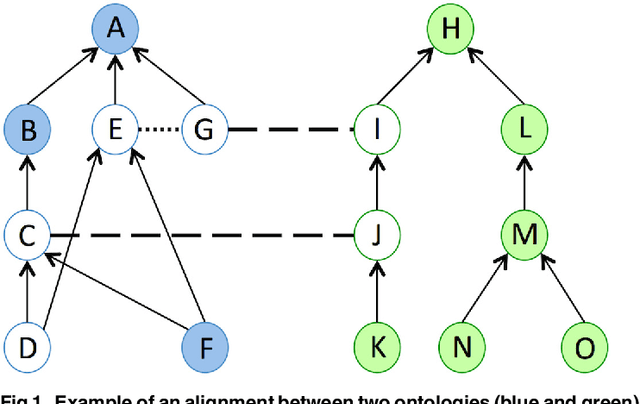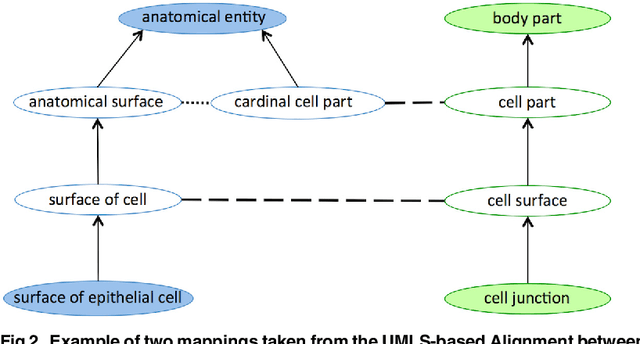Daniel Faria
CMOMgen: Complex Multi-Ontology Alignment via Pattern-Guided In-Context Learning
Oct 24, 2025



Abstract:Constructing comprehensive knowledge graphs requires the use of multiple ontologies in order to fully contextualize data into a domain. Ontology matching finds equivalences between concepts interconnecting ontologies and creating a cohesive semantic layer. While the simple pairwise state of the art is well established, simple equivalence mappings cannot provide full semantic integration of related but disjoint ontologies. Complex multi-ontology matching (CMOM) aligns one source entity to composite logical expressions of multiple target entities, establishing more nuanced equivalences and provenance along the ontological hierarchy. We present CMOMgen, the first end-to-end CMOM strategy that generates complete and semantically sound mappings, without establishing any restrictions on the number of target ontologies or entities. Retrieval-Augmented Generation selects relevant classes to compose the mapping and filters matching reference mappings to serve as examples, enhancing In-Context Learning. The strategy was evaluated in three biomedical tasks with partial reference alignments. CMOMgen outperforms baselines in class selection, demonstrating the impact of having a dedicated strategy. Our strategy also achieves a minimum of 63% in F1-score, outperforming all baselines and ablated versions in two out of three tasks and placing second in the third. Furthermore, a manual evaluation of non-reference mappings showed that 46% of the mappings achieve the maximum score, further substantiating its ability to construct semantically sound mappings.
Ontology alignment repair through modularization and confidence-based heuristics
Jul 19, 2013



Abstract:Ontology Matching aims to find a set of semantic correspondences, called an alignment, between related ontologies. In recent years, there has been a growing interest in efficient and effective matching methods for large ontologies. However, most of the alignments produced for large ontologies are logically incoherent. It was only recently that the use of repair techniques to improve the quality of ontology alignments has been explored. In this paper we present a novel technique for detecting incoherent concepts based on ontology modularization, and a new repair algorithm that minimizes the incoherence of the resulting alignment and the number of matches removed from the input alignment. An implementation was done as part of a lightweight version of AgreementMaker system, a successful ontology matching platform, and evaluated using a set of four benchmark biomedical ontology matching tasks. Our results show that our implementation is efficient and produces better alignments with respect to their coherence and f-measure than the state of the art repairing tools. They also show that our implementation is a better alternative for producing coherent silver standard alignments.
Testing the AgreementMaker System in the Anatomy Task of OAEI 2012
Dec 07, 2012
Abstract:The AgreementMaker system was the leading system in the anatomy task of the Ontology Alignment Evaluation Initiative (OAEI) competition in 2011. While AgreementMaker did not compete in OAEI 2012, here we report on its performance in the 2012 anatomy task, using the same configurations of AgreementMaker submitted to OAEI 2011. Additionally, we also test AgreementMaker using an updated version of the UBERON ontology as a mediating ontology, and otherwise identical configurations. AgreementMaker achieved an F-measure of 91.8% with the 2011 configurations, and an F-measure of 92.2% with the updated UBERON ontology. Thus, AgreementMaker would have been the second best system had it competed in the anatomy task of OAEI 2012, and only 0.1% below the F-measure of the best system.
 Add to Chrome
Add to Chrome Add to Firefox
Add to Firefox Add to Edge
Add to Edge